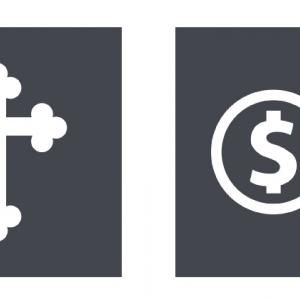LeAnn Snow Flesher, PhD, is Academic Dean/CAO and Professor of Old Testament at American Baptist Seminary of the West at The Graduate Theological Union in Berkeley, Calif.
Posts By This Author
'Left Behind' Elitists
I have just returned from South Korea where I did an academic lecture on premillennial dispensationalism at Hoseo University. My very basic overview of the five aspects of Premillennial Dispensationalism: tribulational views, millennial views, dispensational categories, the Darby system, and biblical interpretive perspectives created quite a stir amongst students and faculty, which only goes to prove the impact that premillennial dispensationalism has had on the Christian community worldwide. I chose this topic in honor of the recent reissuance of the Left Behind movie.
Since the movie came out on Oct. 3, there have been numerous blog responses. I point you to two in particular that reflect my own views on the details of the biblical text and its interpretation:
- Nobody Is Getting 'Left Behind' (Because the Rapture Is Never, Ever Going to Happen)
- Why ‘Left Behind’ should be... left behind
Given these interpretations of the theology found in the Left Behind series I would like to take the conversation to the next level.
What has not yet been said in any blog that I have read is that premillennial dispensationalism is an elitist theology.
Tweets v. Tweaks: Financing Seminary Education (Part III)
Editor's Note: This is the final piece in a three-part series on Financing Seminary Education. Read Part 1 here and Part 2 here.
“The higher education industry is facing a multi-pronged and existential threat composed of successive waves of disruptive innovation” (Butler, “Tottering Ivory Towers,” American Interest (Sept/Oct). It seems higher education, including seminary education, is going the way of the music and media industries! Our 2,000-year-old business model of “sage on stage” could be truly doomed. The appearance of “massive open online courses” (MOOCs) over the past few years has thrown many higher education institutions for a loop, and more innovations are on the way.
In response to these new innovations higher-ed institutions, including seminaries, have tweaked their business models with a few technological modifications such as PowerPoint, email, electronic research, and online courses. But, will it be enough? Butler says “no” and so do the trends. The reality is graduates of today’s higher-ed institutions are not evidencing the competencies expected and/or hoped for by their future employers. Consequently, accreditation standards, at an all-time high in complexity, are now beginning to be challenged. Simultaneously, tuitions are costly, the economy is tough, and the job market is even tougher. The end result is that students are graduating with large amounts of student loan debt and potential students are opting out of the education market.
We began the 21st century with denominations and churches that no longer fit the needs of a shifting society, a Congress that votes against the poor and the middle class, and seminaries that face multi-pronged threats to their existence. It’s time for an overhaul!
Capitalism v. Democracy: Financing Seminary Education (Part II)
Author’s Note: Institutions we have valued for generations are dwindling and falling by the wayside because we no longer have the finances to sustain them. In this second essay on financing seminary education (read the first HERE), I will address the socio-political and economic concerns that add to the complexity of the current crisis in theological education.
Democracy is based on the ideal of political equality. Each citizen is to have the same potential to influence what government does regardless of financial status. Markets, on the other hand, are directly related to real dollars. The consequent result for the U.S. democratic capitalistic structure is that while the rich and the poor are equal politically, they will never be equal economically. This combination could lead to two undesirable extremes: 1) mob rule by asset-less democratic majorities, or 2) oligarchic rule by the affluent. Thus, government’s role is to oversee the enterprise through the creation of regulatory policies that prevent runaway markets and taxation that assures a sustainable distribution of wealth and resources for the whole population. In order to achieve these goals, political theorists have developed models that focus on creating and sustaining a strong middle class with the result that the median voter will correct rising inequality in wealth as well as poor economic performance.
Low Wages, Student Debt, and 'The Call:' Financing Seminary Education
The contemporary fast-paced, capitalistic, U.S. free market society has lost the traditional commitments to and comprehension of ‘church.’ Our parents and grandparents understood church as a community to which they belonged. Church was a place where many aspects of social life happened. The pastor was hired by the church people to care for and nurture the community, both individually and collectively. People looked to the pastor for spiritual inspiration, ethical guidance, sound counsel, and pastoral care. The pastor was an extended member of the family and people were happy to make a personal financial contribution to pay the pastor's salary and to keep the church building in repair. Somewhere along the line our society ‘outgrew’ this version of church.
A recent article in The Atlantic titled "Higher Calling, Lower Wages: The Vanishing of the Middle-Class Clergy" laments the shift away from the traditional model of financing church and clergy as well as the increased costs for training clergy. The average Master of Divinity student (the degree for pastoral training) graduates with tens of thousands of dollars in student loans — sometimes entering into the six-digit category. According to the U.S. department of labor, the median wage for a pastor is $43,800 — not a salary that lends itself to paying off high-end loans.



